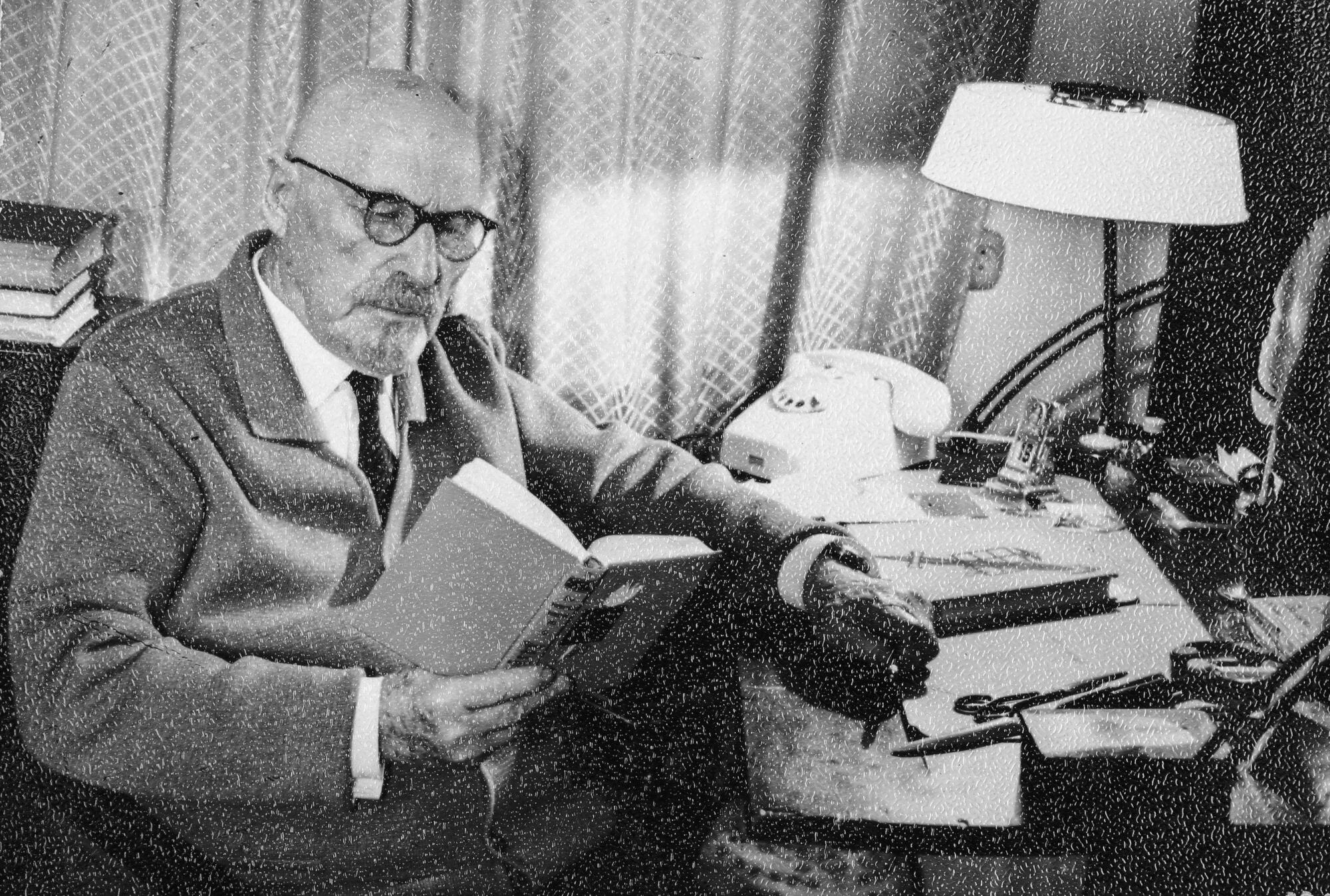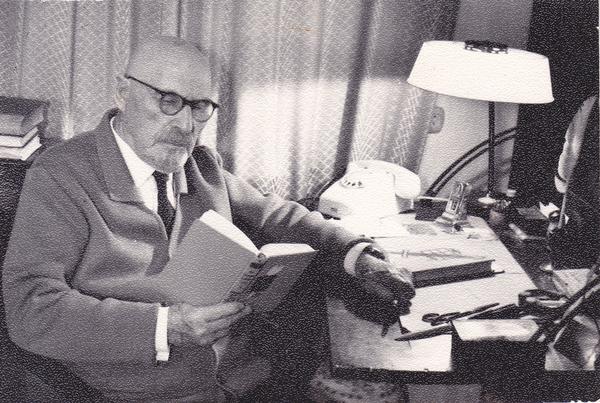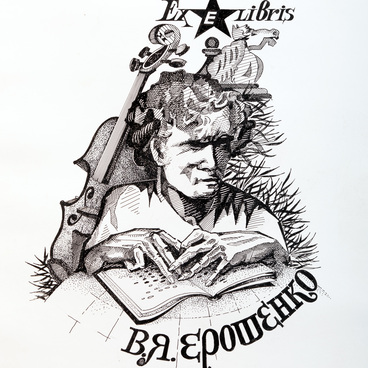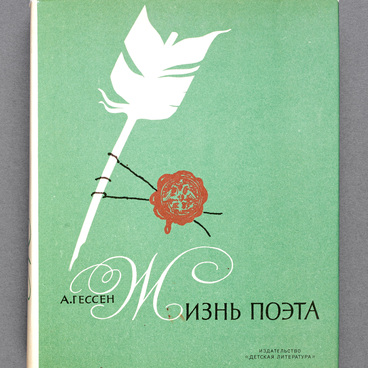The journalist Arnold Ilyich Gessen, born in the town of Korocha, turned to the Pushkin studies after his retirement. According to his recollections, his love for Pushkin’s works arose as early as his childhood but truly flourished after the episode that occurred in 1956.
Gessen was already 78 years old at the time. In Leningrad, with an interval of several days, he attended two events dedicated to the anniversaries of the death of two poets that were friends: Alexander Sergeyevich Pushkin and Anton Antonovich Delvig. Both events were held at Pushkin’s last apartment at 12, Moyka Street Embankment, in “the same living room where the poet received his friends.” The feeling of the living presence of the owner of the house, enhanced by the contemplation of the portrait of Pushkin by Orest Adamovich Kiprensky, was so strong that Gessen immersed himself in the study of the Pushkin theme. He read numerous studies, but most importantly, he reviewed the archives of the Pushkin House — the poet’s manuscripts and books that contained comments in the margins and notes between the pages.
Since 1961, Arnold Gessen published six books, based on the documents and written in a lively language. It was his contribution to the Pushkin studies that earned him the award of the Znanie Society and admittance to the USSR Union of Writers.
The displayed photograph captured Arnold Gessen at a desk in his Moscow apartment, holding the book in his hands called “‘All would excite the tender mind…’ Pushkin Among Books and Friends” (1965). It included forty-five literary sketches, which were based on the impressions from the careful study of the poet’s books and manuscripts. There is another book on the table — “‘In the depths of Siberian mines…’ Decembrists in Katorga and Exile” (1963). The stories by Sergey Grigoryevich Volkonsky, Mikhail Sergeyevich Lunin, Gavriil Stepanovich Batenkov and other exiles about life in Siberia and the fate of eleven Decembrist wives are masterfully interwoven with fragments of memoirs and accounts of their contemporaries.
The author’s preface prepares the readers for a story of “tragic unexpected turns, hopes and disappointments… sad memories of the past and painful thoughts about the transience of life.”
Gessen was already 78 years old at the time. In Leningrad, with an interval of several days, he attended two events dedicated to the anniversaries of the death of two poets that were friends: Alexander Sergeyevich Pushkin and Anton Antonovich Delvig. Both events were held at Pushkin’s last apartment at 12, Moyka Street Embankment, in “the same living room where the poet received his friends.” The feeling of the living presence of the owner of the house, enhanced by the contemplation of the portrait of Pushkin by Orest Adamovich Kiprensky, was so strong that Gessen immersed himself in the study of the Pushkin theme. He read numerous studies, but most importantly, he reviewed the archives of the Pushkin House — the poet’s manuscripts and books that contained comments in the margins and notes between the pages.
Since 1961, Arnold Gessen published six books, based on the documents and written in a lively language. It was his contribution to the Pushkin studies that earned him the award of the Znanie Society and admittance to the USSR Union of Writers.
The displayed photograph captured Arnold Gessen at a desk in his Moscow apartment, holding the book in his hands called “‘All would excite the tender mind…’ Pushkin Among Books and Friends” (1965). It included forty-five literary sketches, which were based on the impressions from the careful study of the poet’s books and manuscripts. There is another book on the table — “‘In the depths of Siberian mines…’ Decembrists in Katorga and Exile” (1963). The stories by Sergey Grigoryevich Volkonsky, Mikhail Sergeyevich Lunin, Gavriil Stepanovich Batenkov and other exiles about life in Siberia and the fate of eleven Decembrist wives are masterfully interwoven with fragments of memoirs and accounts of their contemporaries.
The author’s preface prepares the readers for a story of “tragic unexpected turns, hopes and disappointments… sad memories of the past and painful thoughts about the transience of life.”



